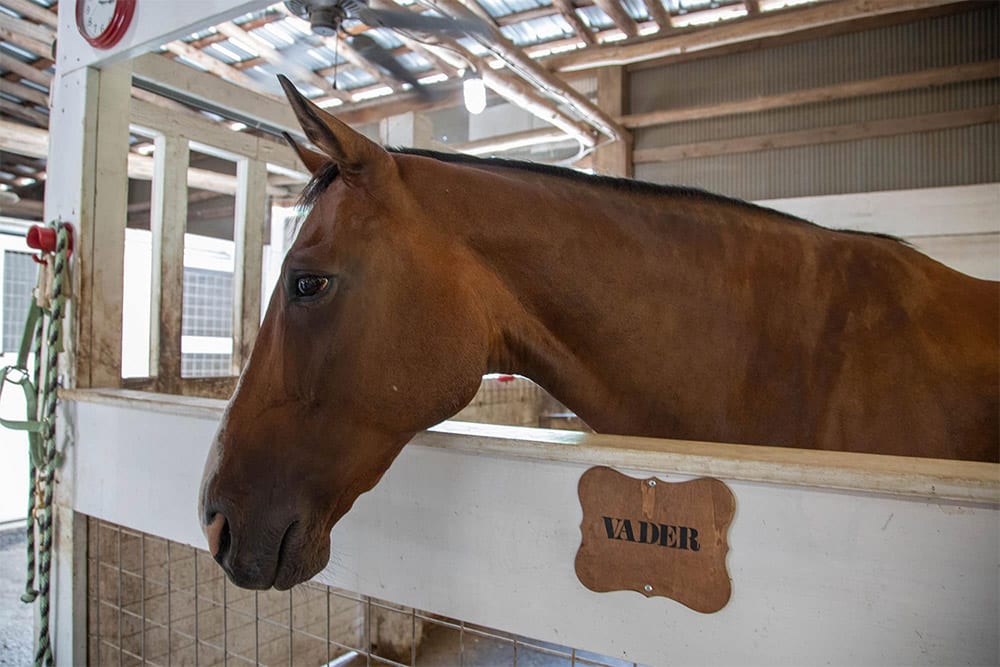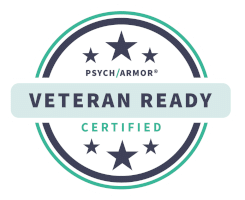Home | Treatment | What We Treat | Autism Spectrum Disorder
What We Treat
Autism Spectrum Disorder
Autism spectrum disorder treatment at Pasadena Villa
At Pasadena Villa’s dedicated autism spectrum disorder (ASD) treatment center, The Stables Autism Program, we offer autism-specific care in a comfortable, home-like setting with a low client-to-staff ratio.
Located in the Great Smoky Mountains, our program helps individuals develop self-awareness, acceptance, inner strength, and life skills. Our evidence-based treatment focuses on skill-building in four key areas: goal setting, executive functioning, emotion regulation, and social skills.
We utilize various therapeutic approaches, including cognitive behavioral therapy (CBT), animal-assisted therapy (AAT), and experiential therapy, to tailor treatment to each client’s unique needs and strengths. Our ultimate goal is to empower clients to embrace their brain’s natural wiring, helping them live fulfilling, independent lives.
Our ASD treatment focuses on developing skills in four essential areas:
- Goal setting
- Executive functioning
- Emotion regulation
- Socialization
Understanding ASD
ASD is a condition that affects the development of key skills, including socialization, communication, and independent living abilities. It’s characterized by two main types of behaviors — restricted / repetitive behaviors and social communication / interaction challenges. However, not everyone diagnosed with ASD displays all the symptoms associated with the condition. The term “neurodivergent” has also become more widely used, referring to individuals who may not have an ASD diagnosis but recognize that their brain processes and functions differently from typical patterns.
There are two main types of behaviors associated with ASD — restricted / repetitive behaviors and social communication / interaction behaviors. While not all people diagnosed with ASD show all the autism spectrum disorder symptoms, it is common for them to show several.
National Alliance on Mental Illness
FAQs
Questions about autism spectrum disorder
What is autism spectrum disorder?
Autism spectrum disorder (ASD) encompasses a range of developmental conditions characterized by challenges in social interaction, communication, and repetitive behaviors. These difficulties can vary widely in severity and often delay the development of essential skills like socializing, communicating, and independent living.
ASD is typically diagnosed in children aged 2 to 6 through comprehensive physical, neurological, and psychiatric evaluations. In adults, diagnosis is more complex, as symptoms may overlap with other mental health conditions like ADHD or schizophrenia. There are no medical tests for autism, as diagnosis relies on careful assessment of behavioral symptoms.
What are the symptoms of autism spectrum disorder?
ASD symptoms typically fall into two categories: restrictive/repetitive behaviors and social communication/interaction challenges. Common signs of ASD include:
- Repeating specific actions or displaying unusual behaviors
- Intense focus on certain objects or parts of objects
- Obsessive interest in specific topics
- Becoming upset by minor changes in routines or new, overstimulating environments
- Limited or inconsistent eye contact
- Less frequent engagement with others, both in looking and listening
- Unusual responses to others’ emotions, such as anger, distress, or affection
- Talking excessively about favorite subjects without recognizing others’ lack of interest
- Difficulty understanding others’ perspectives or actions
What causes autism spectrum disorder?
While the exact cause of ASD is still unknown, research points to a combination of genetic and environmental factors. Boys are more frequently diagnosed, though studies suggest girls may be underdiagnosed due to higher rule compliance and masking behaviors.
Residential Autism Treatment
The Stables Autism Program
At The Stables, we provide high-quality personalized programming. We collaborate with clients and their families to create customized treatment plans tailored to each individual’s unique needs.











Pasadena Villa
How We Treat Autism Spectrum Disorder
We believe in a strength-based approach and empowering our clients to make their own choices in a safe environment. This allows our clients to learn from natural consequences in real time. Parallel to the TEACCH method, when behaviors are observed, the team collaborates to develop individualized behavioral interventions, which are then performed in real time. This allows the client to develop and practice the skills in diverse situations and environments.
Cognitive behavioral therapy (CBT) helps individuals with ASD overcome social, emotional, and behavioral challenges. Our tailored approach promotes essential life skills, increases self-awareness, and builds confidence in navigating daily experiences by:
Enhancing social skills
CBT offers structured strategies to strengthen communication, understand social cues, and form meaningful relationships.
Managing anxiety & sensory sensitivities
Individuals learn to identify triggers, reframe negative thought patterns, and develop coping skills to reduce anxiety from routine changes or sensory overload.
Regulating emotions
CBT techniques support emotional awareness and help individuals manage frustration, improve flexibility, and respond more effectively to challenges.
By integrating CBT into our autism programs, we help clients build confidence and self-awareness, increase independence, and achieve lasting emotional growth across all areas of life.
Dialectical behavior therapy (DBT) is a key component of our autism treatment program, helping individuals with ASD develop essential skills, strengthen relationships, and manage distress. Many individuals with ASD experience heightened emotional responses, difficulty interpreting social cues, and increased stress in unfamiliar environments.
DBT teaches practical, evidence-based strategies to:
Regulate emotions
Recognize intense feelings and respond with balanced, healthy coping tools.
Improve communication
Understand nonverbal cues, express needs clearly, and build meaningful social connections.
Reduce stress
Identify triggers, develop self-soothing techniques, and stay grounded during sensory overload or unexpected change.
By integrating DBT into care, we help clients increase self-awareness, build resilience, and navigate life’s challenges with greater confidence and stability.
Experiential therapy helps individuals with ASD develop critical life skills through active, hands-on experiences. We offer structured sessions with personalized plans, gradual sensory exposure, and family involvement. At Pasadena Villa, we tailor each session to the client’s needs, ensuring structure, consistency, and a sense of safety.
Experiential therapy fosters growth, self-confidence, and greater independence — empowering clients to engage more fully in daily life.
Key components include:
Individualized treatment plans
Customized goals based on each client’s strengths and challenges.
Predictable, structured sessions
Designed to reduce anxiety and build trust.
Gradual sensory exposure
Designed to reduce anxiety and build trust.
Family involvement
Encourages skill reinforcement and emotional support at home.
Real-world application
Through our Social Integration Model™, clients practice skills in everyday settings.
Our unique approach helps families understand ASD and contribute positively to treatment. Through flexible in-person and virtual sessions, psychoeducation, training, and an annual retreat, families learn effective communication, boundary-setting, and relapse prevention strategies that support long-term healing.
We also offer parent training, an annual family retreat, and opportunities to connect with trusted resources like the National Autism Center.
Clients work one-on-one with trained staff to master daily living tasks such as hygiene, cooking, and job readiness. Our team models, teaches, and reinforces skills that build confidence and support long-term independence in day-to-day life.
Clients participate in yoga and meditation to improve self-awareness, manage emotions, and stay centered during stressful moments. These practices help build healthy coping mechanisms and support emotional regulation.
Motivational interviewing (MI) is a client-centered counseling method that helps individuals with ASD explore their values, overcome ambivalence, and find personal motivation for change. It’s especially effective for those unsure about treatment or struggling with emotional regulation.
This short-term, collaborative approach:
Encourages self-reflection and goal setting
Builds internal motivation in a nonjudgmental way
Supports individuals through emotional and behavioral change
Prepares clients for deeper engagement in other therapies
MI recognizes that lasting change takes time and that individuals progress through different stages of readiness. By meeting clients where they are, our therapists help build the confidence and clarity needed to move forward in recovery and personal development.
Interacting with animals enhances emotional connection, acceptance, and personal growth. Animal-assisted therapy (AAT) integrates multiple therapy models to build skills like emotional regulation, self-acceptance, and relationship development in a calming, natural environment.
All animal-assisted activities are facilitated by licensed professionals who specialize in this approach or by trained staff under their supervision.
Adults with ASD often experience social isolation, which can significantly impact overall well-being. That’s why we emphasize social integration as a central part of treatment, helping clients build meaningful relationships and develop the social skills needed to engage confidently with others.
Our approach includes:
Modeling and active training
in real-time social scenarios
Individual coaching
to strengthen communication and interpersonal effectiveness
Repetition and practice
to build confidence and long-term skill retention
As clients develop and reinforce these skills, they experience reduced social anxiety, greater participation in family and community life, and a renewed sense of connection, dignity, and purpose. Our goal is to help each individual thrive — not just in treatment, but in daily life.
Our programming blends relationship-building with career readiness. We partner with community members to offer job and volunteer opportunities, helping clients develop workplace skills, expand their social networks, and prepare for greater independence.
Using Our Social Integration Model™ in Autism Treatment
Our Social Integration Model™ is a cornerstone of our approach to autism treatment. This unique model helps individuals develop essential social and life skills by engaging in real-world experiences within supportive environments. By participating in structured social activities and community interactions, clients learn to navigate relationships, build confidence, and enhance their independence.
Pasadena Villa
Our Levels of Care
From residential treatment to partial hospitalization and intensive outpatient programs, our comprehensive continuum of care meets individuals at every stage of their recovery journey.
Take the first step toward recovery.
Our admissions experts are here to answer your questions and help you begin the process.
Explore our locations or fill out our contact form today.
Your privacy is our priority. All communication is completely confidential.




